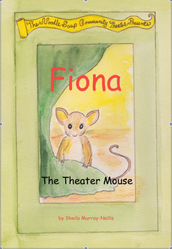Write to your audience. If the audience consists of experts in a field, it is acceptable to write in an advanced level. But, in general, as a writer you must select from three possible levels. The selection should favor the second of the three.
The lowest level, using simple sentences and small words, does not indicate adequate intelligence to write formally, and brings one’s credentials into question. There is an assumption that if one is not proficient in English one is also lacking in proficiency in the subject matter of the article. People want to read the work of someone qualified to write in the field.
The proper level of an article is to use words that are carefully chosen for connotations as well as definitions. Choose words that are well known, but beyond the elementary school level. Avoid, as much as possible, obscure words, unless needed for a specific purpose. In addition, sentences should have phrases that clarify ideas where needed. Simple sentences with few adjectives and adverbs, and devoid of dependent phrases, gives too little credibility to the author.
The other extreme is to write in a pompous manner, using large words as often as possible. If the reader must grab a dictionary multiple times during a reading of an article, the work is not reaching the audience as it should. Writing is not to be taken as an opportunity for an author to show the extent of the author’s vocabulary. Writing is communication, and when one gets to a level where communication ceases the problem is with the author, not the reader.















 Multivariable Calculus: Gradient, Divergence, and Curlon 12/19/2025
Multivariable Calculus: Gradient, Divergence, and Curlon 12/19/2025
 UAPs, Formerly UFOs, If They Are Real How Can We Explain Their Arrival to Earth?on 12/18/2025
UAPs, Formerly UFOs, If They Are Real How Can We Explain Their Arrival to Earth?on 12/18/2025
 Polar Coordinate Systemon 12/16/2025
Polar Coordinate Systemon 12/16/2025
 Aurora Can Disrupt Electrical Devices And Even the Grid?on 12/15/2025
Aurora Can Disrupt Electrical Devices And Even the Grid?on 12/15/2025



Comments
The SEO part is just what I have picked up on Squidoo, Zujava, and here.
blackspanielgallery, What online article or purchasable book do you recommend for SEO?
The problem with the split infinitive came about because in the eighteenth century an influential grammarian, I have forgotten his name, decided that not splitting an infinitive should be a rule, and his influence carried the day.His decision was due to a tendency at that time to latinize the English language. It was not a rule before that time and has never been universally obeyed.
When I was teaching I used to demand that children addressed me in proper English. I would tell them that I would accept nothing else because it was my job to set standards, so I am in agreement with those professors who refuse to read text language gibberish. Veronia and I are the children of a man who never tolerated any bad English from us, but who would always correct us when we erred. Our father only used good English and demanded that we did.
Frank, you would know much better of the complexities.
Veronica, the language is evolving, and it is often doing so to placate those too lazy to learn. One of my issues is with the words such as focus as used in mathematics, which used to pluralize as foci, and formula once pluralized formulae. Today my students stare blankly when I use such plural forms. And, things are now getting to the point where text message language is used to email professors. Many colleagues refuse to read such gibberish, and insist of proper language. The evolution of language may propel us back to caveman grunt before it is done.
England only came into being circa 954 and was series of minor "kingdoms" before this time. English is a "living " language and we probably wouldn't understand it if we went back in time.
Even the English I learned at school has changed. For example, I was taught never to start a sentence with "however" ... however should be a balance word within a sentence.
I was also taught that an infinitive should never be split, but just recently a study by academics said that this is acceptable now. I would still find it difficult to split an infinitive such as "to boldly go " . I would write "to go boldly."
I would usually use "whilst " instead of "while ". They aren't the same.
e.g. We looked round the museum for a while.
Please sit here whilst you wait.
"Whom" is another bug-bear of mine and it is frequently misused.
This is how I was taught and I had what is known as a "classical education".
Alfred and language. It is a bit more complicated than you say. English in the time of Alfred was in three broad kinds: West Saxon, spoken by Alfred; South Eastern, spoken in London and region; and Northern and Midland, which would have comprised a wide range of dialects deriving from Angle, which was a version of Danish. The southern dialects were closer to Friesian, whereas the northern language was akin to Danish. Thus when the Danes came they arrived in an area whose natives spoke a language akin to their own. To complicate matters, western parts of England spoke Welsh, and Norwegian was spoken in Cumberland, the far North West of England.
The language of Alfred was the dominant English until the time of the Norman conquest, and after a lull when French was dominant at court and English became a patois, the English which became dominant was the language spoken around London.
Even today when old men in Newcastle in the North East meet Danes they find that Danish and their local dialect are mutually comprehensible.
There are still accent differences. Take an example, a psychologist from southern England once visited Blackburn in Lancashire, North West England to test children's spelling. She complained to the school staff that all the children had made the same spelling mistake, they had written bas when the psychologist told them to spell bus. The school staff pointed out that the children had not heard the word as she meant it, for when southerners say bus it sounds like bas to northerners. We in the north sound the letter u quite deeply, whereas the southerners make it sound more like a nasal a. We sound it with slightly pursed lips.
I just find it to be the case that once a word is read it must be held in the mind and placed in context, so it does not go away when we read the next word. That to me indicates a neuron involvement, and when the next word come in the mind must make a distinction. If he sounds are too close it can distort the thought process enough that one break the flow when reading, or concentrate to the point of blocking out information when listening. English, having two sources of words that usually are so different, has so many words to choose from that it is so easy to avoid words with similar sounds. I believe it was the Danes whose language was assimilated when England was united under one rule. Hence, words like sick from old English and ill from the Danes. That is just one simple example. My memory is not always reliable on such details, but I believe it may have ben King Alfred who allowed both languages to merge.
The point about neurons was particularly apt and should give pause for thought to any writer.
I think it important to say that language is essentially musical in that it has rhythms, it rises and falls according to the language. English is a very rhythmical language and so writers should be committed to sensitivity to the music of the language that they produce. We should all write with a sensitivity to the rhythmical character of what we write.